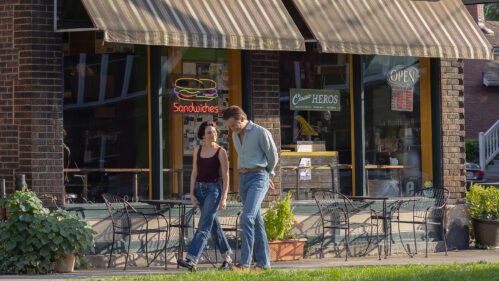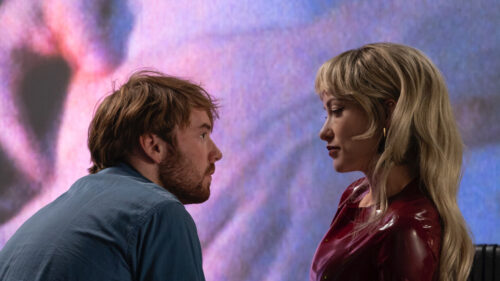CANNES, France — Lolitafest, they could call it, on the basis of three controversial films about child sexual abuse that are playing at this year’s Cannes Film Festival. Two of them are apparently more extreme than the much-debated “Lolita.”
“The Class Trip,” an official selection directed by Belgium’s Claude Miller, is seen through the eyes of a young boy whose father drops him off at a ski lodge for a class ski trip, and then goes on to kidnap and murder another small boy. The young hero, who has been abused by his father and half-suspects him of being capable of murder, survives by displacing his fears into fantasies.
The film has won mostly respectful reviews. But “Happiness” by Todd Solondz and “Babyface” by Canada’s Jack Blum have sharply divided audiences.
“Babyface” tells the story of an alcoholic, promiscuous mother in her 30s; her weak-willed boyfriend, who is in his early 20s, and her 13-year-old daughter, who in the movie’s opening scene is suggesting to the school bus driver that they spent some quiet time together.
By the film’s end, the boyfriend and the young girl will be sharing an active sex life, and the mother will be floating down the river inside a deep freeze. The film is a no doubt accurate portrait of adult irresponsibility and a troubled, sexually precocious child, and can be defended for its sociological insights. But there were a lot of walkouts at its first screening, and some felt the line between comment and exploitation had been crossed.
“Happiness,” which I’ve written about earlier, is one of the most challenging films in the festival. Written and directed by Solondz, whose “Welcome To The Dollhouse” was a brilliant portrait of an unpopular junior high school girl, this one includes a chilling portrait of a father who drugs and rapes his son’s friend.
All week I’ve found myself in discussions about “Happiness” and “The Class Trip,” and the arrival of “Babyface” has brought the topic to a boil. Does it go too far? Does it have “socially redeeming value”? Will some people see it for the wrong reasons? There may be a continuum here between artistic insight and social irresponsibility, with “The Class Trip” on the high end and “Babyface,” despite its undeniable sociological accuracy, shading toward exploitation.
New candidate for the festival’s best actor award: Brendan Gleeson, star of John Boorman‘s “The General,” the life story of Dublin master criminal Martin Cahill, who was assassinated by the IRA in 1994 after trying to sell some stolen paintings to Protestant provisionals.
Cahill pulled off fancy capers, including Ireland’s biggest jewelry and art thefts, and was a figure of great fame, especially after the police started following him everywhere he went. But “The General” is not a caper or crime thriller in any conventional way; it’s a character study of a man who forthrightly describes himself as a criminal, and tries to do his job the best he can, like any hardworking man. Gleeson brings a certain gentle lovability to the character – yes, even in the scene where he nails a colleague to a snooker table.
I looked up the other day, and there was Jerry Berliant. In a strange way, it was a pleasure to see him. Berliant is Chicago’s famed gate-crasher, who has been an uninvited guest at prizefights, political conventions and the Oscars, and here he was inside the American Pavilion of the Cannes Film Festival – which is sort of impressive, considering the gorillas at the door who minutely examine everyone’s photo credentials.
But then Berliant is the Houdini of gate crashers. I remember one year when Gene Siskel and I were presenting some awards at a television convention. Tickets and credentials were required at the door. But we were taken backstage, where security was even tighter, because big stars were set to be on the show. After a publicist passed us through two guarded doors, we were delivered safely to the Green Room – where, there to greet us, was Jerry Berliant, who had appointed himself bartender.











